Art | Wang Kui: Luo Zhou's creation and contemporary adaptation of "Huan Sa Ji"
Author:Cultural Tourism China Time:2022.08.21

Luo Zhou's creation
Contemporary adaptation with "Huan Sa Ji"
King
Since the establishment of the Kunshan Contemporary Kunli Theater in 2015, it has been known as "Kun Kun" by Kunquan enthusiasts. There are good plays every year, creative every year, like a newborn child growing up stubbornly. As an important phenomenon of protecting the protection of the art inheritance of Kunqu opera since the new century, the growth of "Kun Kun" is not only the Kunqu Theater Group at the national level, adding a great new force, but also with a clear "contemporary" position to be the tradition of Kunqu opera tradition. Create transformation and open up new development paths.
The contemporary nature of "Kunkun" is quite clear in "Huan Sa Ji". "Kun Kun" is the closing drama of "Kun Kun" in the eighth China Kun opera art festival in 2021, and it is also the third work edited by Luo Zhou as "Kunkun". As the most dynamic drama writer in Chinese opera, Luo Zhou has presented a large number of artistic boutiques for the contemporary theater with his skillful creative techniques and genius. The height of the writing and the skilled Kunqu music cards lead to the tradition of returning to the recovery of the body literature. "Rong Sa Ji" is marked as "adapting Kunqu", and its creation starts with the first famous drama of the Kunshu drama in the Kunshan Liang Cucai, and naturally pays tribute to the excellent tradition. The artistic ambitions of the former sages and the ingredients are the most creative meaning to show contemporary creators when facing the excellent art tradition.
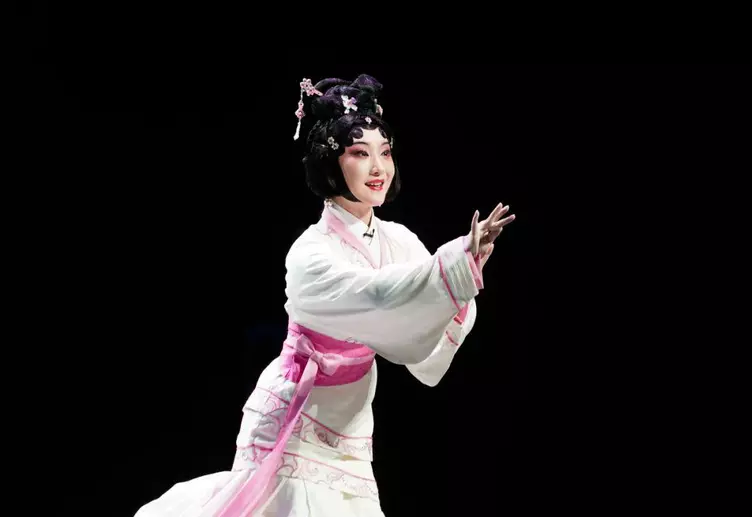
The "Huan Sa Ji" created by Liang Chenyu is the first foundation laid work after the art innovation of the Ming Dynasty. The drama maintains the inherent writing method of the legendary double -line structure. , To focus on the private emotional space of historical figures, but also highlight the experience of the dynasty in the historical incident. Although the plot involves the politics of Wu and Yue during the Spring and Autumn Period, it seems a bit mixed, but placed the love story of Xi Shi and Fan Ye on the sedentary of prosperity. In Wuyue's political game, it shows the sighs and thinking of life and social history. Therefore, after the successful creation of this work, there is the popularity of the so -called "Wu Yan Bai Noodles and Singing, Singing Liang Lang Xueyan's Words", and the passing of "Big", "Send", "Cai Lian", "You Lake", and so on. Qu [Drunk Taiping] "Long Bow Big Knife" even became the first coach of the entry of Kunqu opera, showing the important role of this work in the development and inheritance of Kunqu opera.
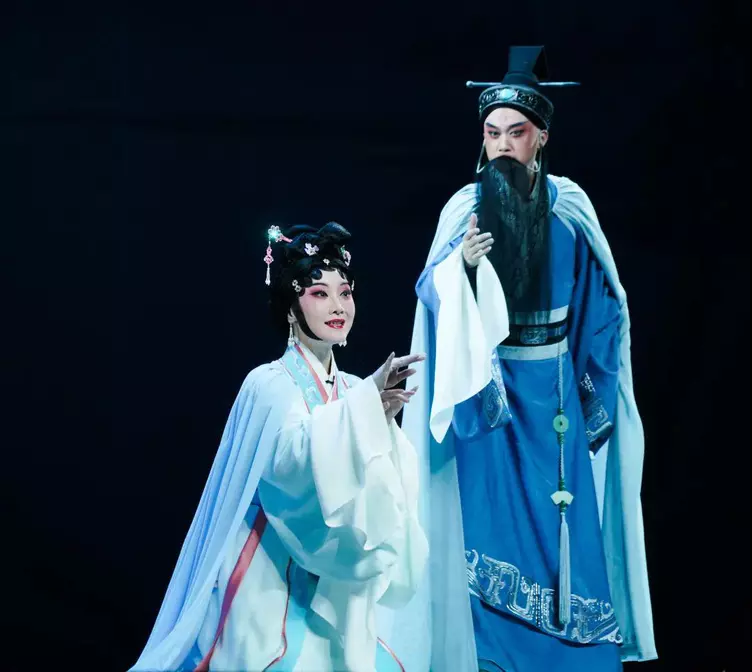
The "Huan Sa Ji" adapted from Luo Zhou is not a series of shows of the traditional "Huan Sa Ji", forming a series of performances for the classic folding drama; On the basis of the relevant purpose of the original work, the clue structure and the relationship between the character involved in the original drama are renovated. In this work, Luo Zhou selected more than a dozen plot content to create, and used the "four -fold" and "wedge" editing techniques she used to use "alliances", "dividing yarn", "discerning yarn", "discern" " The "40 % off" and "don't get more", "into the puppet" and "given swords" three wedges in practice actually formed the scale of seven scenes, and concentratedly concentrated the storyline of the original drama for "home" and "country". The so -called "home" mainly focuses on the love of Xi Shi and Fan Ye, focusing on the acquaintances of the male and female protagonists, and the private emotional expression of goodbye, goodbye; The political game of Wuyue and Vietnam forms a delicate double -line structure in the two types of stories that protrudes in the folding and wedge, which reflects the rise and fall of Wuyue.
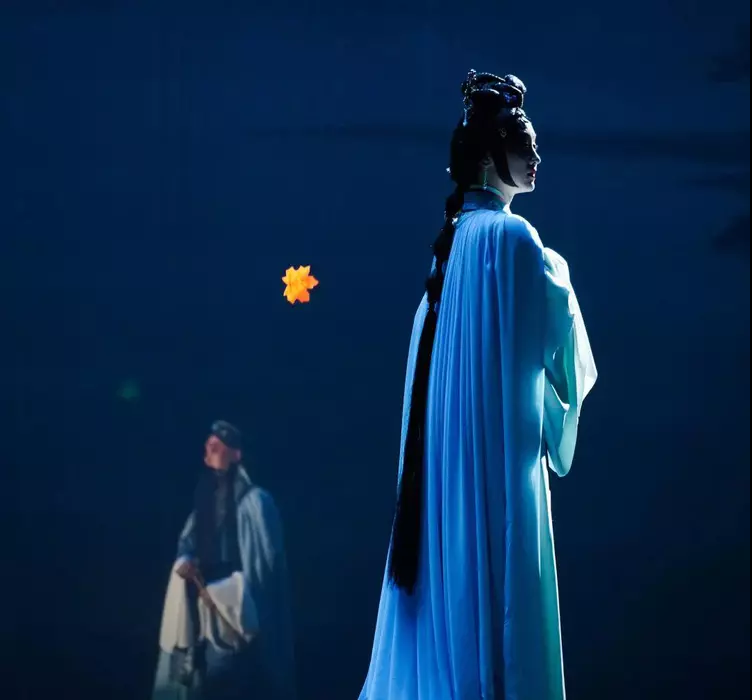
In the newly compiled "Huan Sa Ji", "Said" is the most prominent drama image. If Liang Chenyu's original title of "Huan Sa", it is just a plot related to the protagonist, which constitutes the unique life impression of the protagonist, such as the "Ridge Thousand Peaks of the Ridge in the West" of Tang Xuan. Xiu, the fine grass spring by the river. Today, the gurgling stone, the man of the yaisha is not seen. " Then Luo Zhou's "gauze" identified in the new creation has expanded into an important image of the needle -piercing leader in the plot structure. It carries the hero's emotional sustenance, and also loads the historical memory of Wu Yue's political change.
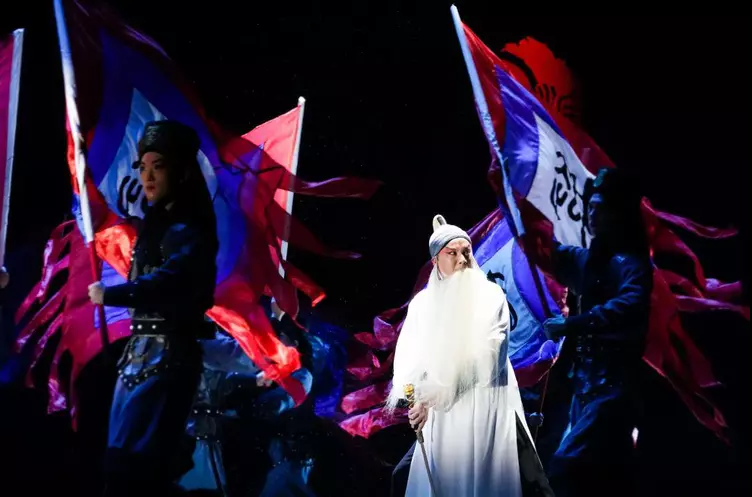
The "gauze" in the play is the most prominent carrier of Xi Shi and Fan Ye's implicit emotion. In "League of Sin", Fan Ye felt the war, and did not make irresponsible emotional commitments. "Tot" on the yarn, "a ray of plain yarn, setting the stream of the stream. If the doctor's heart is the same as the slave, please hold the yarn, and order the deep alliance" to detect Fan Ye's emotional direction; Fan Ye was worried about the state affairs in the yarn, and was forced to present Xi Shi's method of recurring the country. With the door of "a ray of vegetarian gauze, in front of the door. If the girl's heart is the same as Fan Ye. Alliance to express his loyalty to emotions. The two people's almost consistent "back body", almost consistent on the ground facing the choice, both showing their loyalty, embarrassing, helplessness, and pain in their emotions "all the time, all kinds of rocks, never shifted", and persistently persisted. Essence This is also after the prosperity and change of resting, the two people put down all the clutch grievances on the Taihu Lake, with the superwriting perception and access, "the yarn follows the water", walking towards each other to face each other's non -disturbances with Haitian Xianyou. This kind of political deterrence may have a sustainable cycle. Perhaps there is also the helplessness of the sea and mulberry, or maybe there is still a sigh of sorrow, but there is no doubt that after the experience of war and suffering, the individual life is reading the deserture, and the individual life is deepened. The calmness and transcendence obtained after reading the death are the sublimation of individual emotions to life. Especially in the encounters of Wu and Fan Ye's life in Wu and Fan Ye, this "gauze" has become the spiritual motivation of "refusing to die" and "not daring to die" in the environment of "life is not as good". Essence In the folding of the drama "Different Sin", the emotional privacy of "Sa", in the play of Wu Zizhen in the play, walked at the front desk of politics. As a loyal martyr of Wu Guo, Wu Zixu keenly discovered the private relationship hidden by "Sa", and therefore seeing the political role of Xi Shi in Wuyue. Therefore, in distinguishing the falsehood, "yarn" has become an important origin of "loyalty", but the emotional "loyalty" and the "loyalty" of politics are completely rebellious. Of course, in the tiger's view of Wu Guo and his monarchs, Xi Shi must be more calmly examined with emotions, breaking away emotions, and transcending emotions. Instead of the relationship between Xi Shi and Fan Ye Xiang Speech's temporary suspension is better to say that in a dangerous political environment, Xi Shi's implicit and hot emotions, in the form of gambling spell swear, have made the final funeral for the interests of the country and politics. The Shi Shi and Fan Ye in the play began because of their emotion, and they went because of emotions. They coincided with love, but the delicate men and women's feelings were all hidden in the narrative of the great history. In the relationship between Wu Wang's suspicion, Wu Yuan's pursuit, the political pressure of Shi Shi's responsibility fully publicized, and eventually completed her specific life experience in "identifying the yarn". As a result, all the experience and emotions that have become chaotic and history are gathered on Xishi, and it has promoted the creation of the image personality that is different from the past. Wu Zixu's blind loyalty can only express the final dignity in the form of hanging the west gate; and the same blind loyalty, Xi Shi, and the limitedness of emotions finally let the life and expectations of life, emotional damage, the harm of emotion, the damage of emotion, the damage of emotion, the damage of emotion, the damage of emotion, the damage of emotion, Political insults eventually did not damage her own heart, and the pair of "yarn" eventually had an eternal implication and not stagnant in the human heart. Saa is emotion, politics, and even thought. In the meantime, it contains the emotional persistence of the two in different places. Of course, it also condenses their political ethics in the unrest in the home country, including the attitude of life after breaking the historical change.
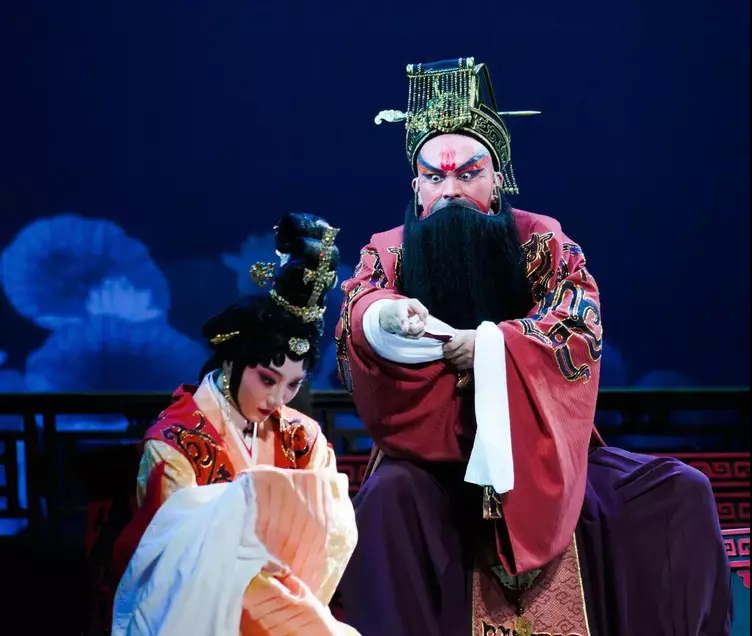
The re -description of Wu Yue's story around the "yarn" allows the opera to express the deep connotation of "love" since the concept of "home" and "national" since expressing the tradition of the tradition. This is not only a traditional idea of writing a sense of rising and falling, but also different from the concept of contemporary writing contemporary writing with historical restoration; not only to avoid the tendency of writing and real history, which is different. Yu followed the special literature and history and because of the fable's writing routine. The drama rely on the fading image of Xi Shi's story to show the real survival tragedy in history. Increas is in the relationship between the male and female protagonists. This kind of historical concept is not a summary of specific historical experience, but just the pursuit of history and emotional memories of the past. An exploration of historical stories.
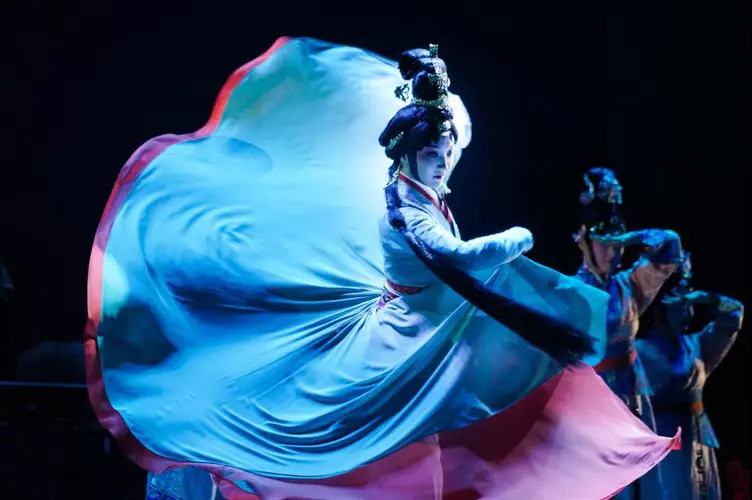
Luo Zhou made full modern expression in "Huan Sa Ji" with a unique drama imagery, structural form and character positioning, and made Kunqu's outstanding literary creation experience that he inherited the legendary creation. The purpose of the drama is determined and the artistic image brought by the drama and literature, which provides a broad creative space for the second creation of the stage. Director Xu Chunlan used simple, poetic colors and light on the stage, highlighting the constraints of the era that the protagonist's unable to get rid of, and created aesthetic style full of Jiangnan impression and historical impression. Although there are still some artistic improvement in the stage director of the stage, this work provides a most important foundation for the forging of the contemporary quality of "Kunkun".
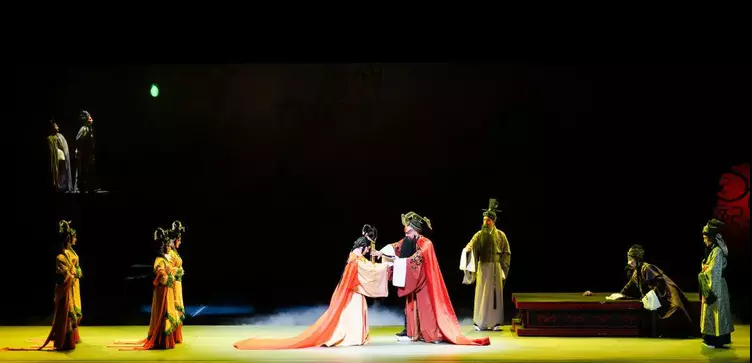
About the Author:
Wang Yan, director of the Institute of Opera Research Institute of the Chinese Academy of Arts, chairman and researcher of the Chinese Opera Society.
(Article Source: Netease News)
Responsible editor: Gou Xiaoqing
- END -
Qilu scenery and good cultural tourism weather new
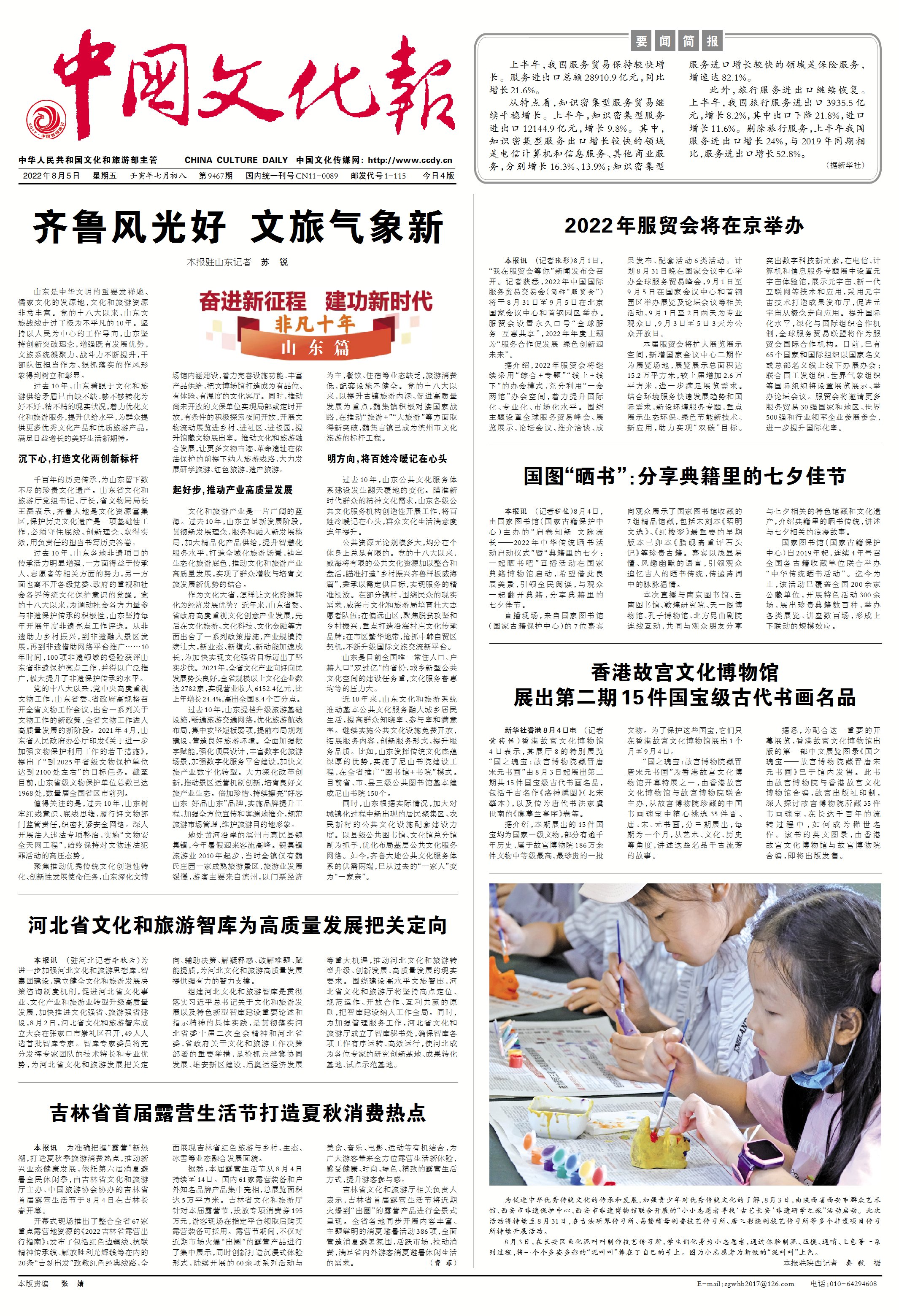
Shandong is an important birthplace of Chinese civilization and the birthplace o...
People's Daily "Focus on People's Artists" -Zhang Senlin

Zhang Senlin: Graduated from Guangdong Huanzhou, graduated from early oil painting...